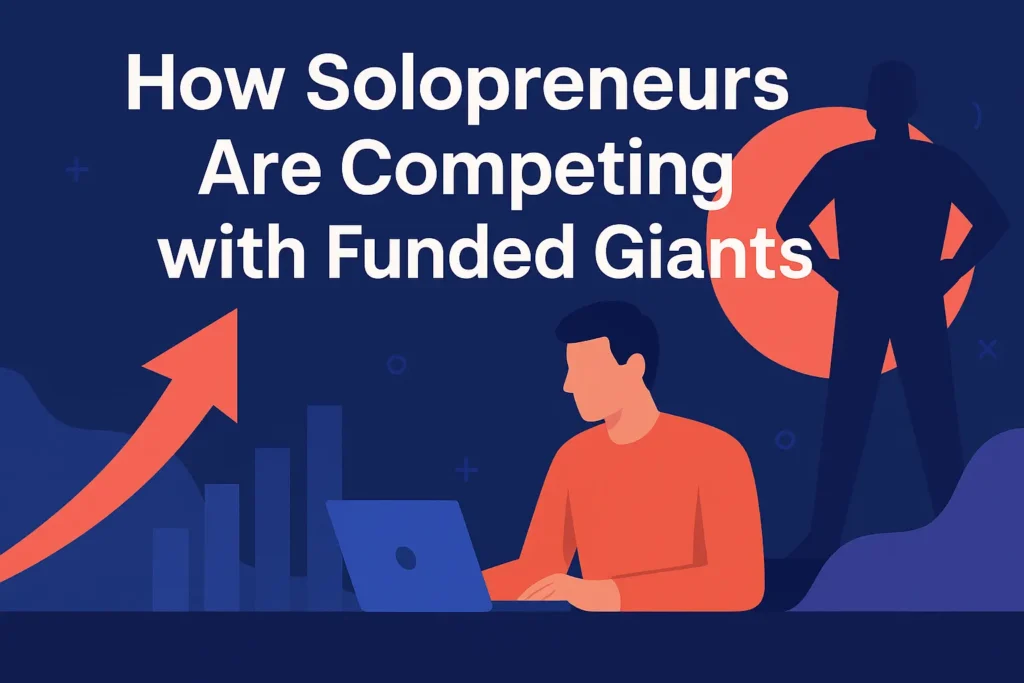Boom in Solo-Founders: How One-Person Startups Are Rising
It’s no longer rare to see successful companies started by just one person. According to Carta, the share of solo founders has more than doubled in a decade to 35% in 2024, though only 17% of them raised venture capital. This shows that solopreneur startups are a growing force, even without traditional funding. (The Wall Street Journal)
AI and No-Code: Two Tech Levers Powering Solopreneurs
Tools like ChatGPT, no-code platforms, and automation tech serve as virtual teams. Replit’s CEO coined this creative process “vibe coding,” where an app can be built in an afternoon using natural language prompts. Solo founders gain enormous leverage, even if scaling still requires technical skill. (Business Insider)
Success Stories: Solo Founders Hitting Big Numbers with Low Overhead
Many solopreneur startups achieve impressive revenue. On Reddit, one founder behind FormulaBot, an AI-powered Excel tool, shares that it makes around $40,000 MRR. Meanwhile, indie creator Tony Dinh reports making $45K/month with about 90% profit.
DIY Bootstrapping: Low Capital, High Profitability
Most solopreneurs launch lean. Gusto reports nearly 50% start with less than $5,000, and 77% are profitable in their first year– significantly higher than traditional businesses. (Gusto)
“Vibe Coding” Revolution: Build Apps in an Afternoon- No Team Required
Replit’s rise exemplifies AI-powered productivity. Their revenue surged from $10M to over $100M in six months, powered by AI-assisted app building. Non-technical individuals- from doctors to designers now build functional software quickly. (Business Insider)
Solopreneurs vs Funded Giants: The Agility Advantage
Solo founders act like speedboats- nimble and fast to pivot. They aren’t slowed down by layers of management or decision-making bottlenecks that bigger teams face. (ComplexDiscovery, The Wall Street Journal)
Mental, Financial, and Regulatory Challenges of Going Solo
However, solopreneurship brings challenges. Solo founders face financial uncertainty, risk of burnout, and increasingly complex regulations as their businesses grow. (Forbes)
Changing Venture Capital Norms: More Solo, Less Traditional Funding
Although fewer than 1 in 5 solopreneur startups secure traditional VC funding, a shift is underway. New micro-funding models and revenue-based financing are emerging, better fitting solo-led ventures. (The Wall Street Journal, ComplexDiscovery)
What Drives People to Go Solo- The Freedom Factor
The solopreneur path is often about autonomy: no HR, no politics, and full creative control. It appeals to those craving independence and flexibility. Forbes notes that solopreneurism is reshaping business norms. (Forbes)
Summary
Solopreneur startups are increasingly common and increasingly capable. Driven by AI, no-code tools, and no-frills lean operations, one-person ventures now compete effectively with funded teams. Despite challenges like burnout and limited funding, the freedom and financial rewards continue to draw individuals to blaze their own path. If collaboration tools and AI evolve further, solo entrepreneurship may become the standard for innovation.
Hi Friends, This is Swapnil Gupta, I am a Founder and Author at Startups Union.
